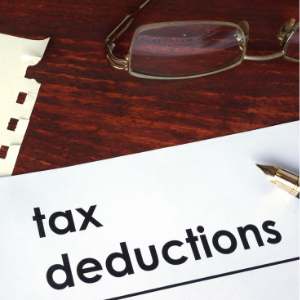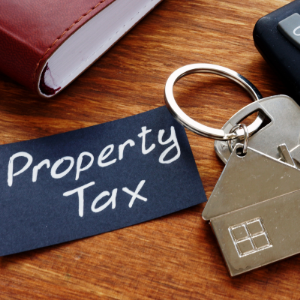
Understanding the Property Tax Rates in Garland, Texas
Understanding property tax rates is critical for homeowners selling a home in Garland, Texas. Property taxes in Garland are calculated using the appraised value of your home and the local tax rate established by various taxing agencies, such as the city, school district, and county.
The Garland Independent School District, Dallas County, and other local governments all play essential roles in determining these rates. Homeowners should know these rates change annually based on budgetary requirements and property values.
When selling your home, you must review your annual property tax statement to see how much you owe. Furthermore, overdue property taxes must be paid during the closing to guarantee a seamless sale.
Understanding how exemptions and deductions affect your overall tax liability is critical for realizing possible savings during the sale process. Familiarizing yourself with these aspects of property taxation in Garland can allow you to predict better the costs of selling your home.
If you’re overwhelmed by the tax process or need to sell quickly, working with a trusted cash buyer like Ready House Buyer can ease the burden. Whether you want to sell your Garland house fast or get a fair cash offer in nearby cities like Mesquite, Rowlett, or Richardson, their team specializes in fast, hassle-free sales that help homeowners move forward without the stress of traditional real estate hurdles.
Key Factors Affecting Real Estate Taxation in Garland

Understanding the primary aspects influencing real estate taxation is critical for homeowners selling a house in Garland, Texas. One key factor is capital gains tax, which is levied on the earnings from the sale of a property.
In Garland, as in the rest of Texas, homeowners may be eligible for an exception if they have lived in their house for at least two of the five years before sale. Individuals can exclude up to $250,000 in gain from taxable income ($500,000 for married couples filing jointly).
Additionally, local property taxes play an important role. They are usually determined by appraisals performed by the county appraisal district. Changes in appraised value before sale can impact financial outcomes. Texas does not have a state income tax, but federal tax obligations remain important considerations.
Understanding the various deductions and exemptions available at the state and federal levels can dramatically reduce the tax owed after selling a home. Homeowners should also be aware of any changes to tax regulations that may affect real estate transactions in Garland and contact a professional tax advisor to negotiate these intricacies efficiently.
Comprehensive Guide to Home Sale Taxes in Garland, Texas
Selling your house in Garland, Texas, necessitates a grasp of numerous tax consequences that might have a significant financial impact. When selling a house, you must consider the capital gains tax, which applies to the earnings from the sale of your home.
Under Texas law, homeowners in Garland may be qualified for certain exemptions or deductions that can reduce their taxable income. The IRS offers a principal residence exclusion, which allows single filers to deduct up to $250,000 and married couples up to $500,000 of their gains from income taxes if certain ownership and use criteria are met.
Garland homeowners must keep detailed records of purchase and sale pricing and home upgrades because these elements influence capital gains calculations. Additionally, working with a local tax advisor or real estate agent knowledgeable about Texas legislation can provide helpful insights into lowering tax costs when selling a home in Garland.
Understanding these complicated factors ensures that you follow federal and state tax regulations while maximizing the financial rewards of the sale.
If you’re looking for a simpler path, Ready House Buyer offers a fast, all-cash solution. They can help you sell your house fast in Garland or buy your home for cash in Rowlett or Mesquite, allowing you to move forward without waiting on mortgage approvals, repairs, or agent fees.
Navigating Capital Gains Tax When Selling a Home in Garland
Understanding the potential capital gains tax ramifications when selling a house in Garland, Texas, is critical for achieving the best financial outcome. Capital gains tax is levied on the profit gained from the sale of your property, and understanding how it works will help you manage this element of real estate transactions more successfully.
The IRS provides exceptions that may apply if the house was your primary residence for at least two of the previous five years before the sale. You could be eligible for an exclusion of up to $250,000 in capital gains if you are single, and up to $500,000 if you are married and filing jointly.
This can drastically reduce or even eliminate any taxable gain from the transaction. However, certain conditions, such as major capital renovations made to the home during ownership, can impact your taxable amount by increasing the cost basis.
Keep detailed records of such expenses to determine any precise prospective tax liability. In addition, speaking with a tax expert familiar with Texas real estate rules can provide unique advice tailored to your circumstances in Garland.
Strategies to Minimize Taxes on Home Sales in Garland, Texas
Understanding and executing tax-cutting techniques can benefit homeowners selling a house in Garland, Texas. One effective strategy is to use the capital gains tax exclusion, which allows single homeowners to exclude up to $250,000 of the earnings on the sale of their primary dwelling. In comparison, married couples filing jointly can deduct up to $500,000.
To be eligible for this exclusion, the homeowner must have resided in the home as their principal residence for at least two of the five years preceding the sale. Another method is to maximize your costs by including any home improvement charges spent during ownership; these modifications should be well-documented and follow IRS requirements.
Additionally, timing is critical. Consideration of market circumstances and personal income levels may help reduce taxable profits or even allow sellers to slip into a lower tax band. For those who do not meet the primary residence requirements, a 1031 exchange may allow them to delay capital gains taxes by reinvesting the earnings in a similar property.
Consulting with a tax specialist familiar with Texas real estate laws can provide personalized guidance, ensure compliance with state-specific rules, and improve tax consequences.
Impact of Local Tax Laws on Real Estate Transactions in Garland
When selling a home in Garland, Texas, you must understand how local tax regulations affect real estate transactions. The Dallas Central Appraisal District decides on Garland’s property taxes and assessments of property values every year.
Any changes in property valuation can significantly impact the amount of capital gains tax owing when selling a home. Furthermore, Texas does not have a state income tax, but sellers must account for federal capital gains taxes and any applicable exemptions when determining net proceeds.
Homeowners may be eligible for the federal primary residence exception if they lived in their house for at least two of the five years before sale. This exclusion might exempt up to $250,000 of gain for single filers and $500,000 for joint filers from taxable income. Understanding the local tax ramifications helps to maintain compliance with state and federal requirements while maximizing financial rewards throughout a Garland real estate transaction.
Tax Deductions and Credits for Homeowners in Garland, Texas

When selling a home in Garland, Texas, homeowners should know the many tax breaks and credits that might considerably improve their financial status. The mortgage interest deduction, which allows homeowners to deduct mortgage interest from their taxable income, can reduce their overall tax bill.
Property tax deductions are significant for homeowners selling their properties since they can deduct the property taxes paid during the year of sale. Another critical issue is capital gains exclusions; if you resided in your house for at least two of the five years before selling, you can deduct up to $250,000 in capital gains tax if you are single or $500,000 if you are married filing jointly.
It is also essential to account for any home renovations completed during ownership, as these might be contributed to your house’s basis and minimize taxable capital gains. Understanding these deductions and credits can help Garland homeowners optimize their savings and confidently manage the complexities of real estate transactions.
Essential Tax Considerations for First-Time Home Sellers in Garland
When selling a house in Garland, Texas, for the first time, it is critical to understand the tax ramifications that may alter your financial outcome. One of the most essential issues is capital gains tax, which may apply if you sell your property for more than you originally paid.
However, as a Garland homeowner, you may be eligible for certain deductions under the IRS’s primary residence exception, which could shelter up to $250,000 of your gain from taxes if you’re single, or $500,000 if you’re married filing jointly. To be eligible for these exclusions, you must have owned and resided in the home as your primary residence for at least two of the five years before the sale.
It’s also crucial to consider any modifications you’ve made to the property over time because certain expenses can affect your cost basis and lower taxable profits. Understanding local property taxes is another important consideration; this might affect your selling process and future liabilities in Garland.
Consulting with a tax specialist experienced with Texas real estate laws can provide specialized advice, ensure compliance with federal and state rules, and optimize your financial benefits throughout this critical transaction.
How Property Valuation Affects Your Tax Bill in Garland, Texas
When selling your house in Garland, Texas, it is critical to understand how property valuation affects your taxes. The appraised valuation of your property substantially impacts the capital gains tax you may be required to pay when you sell.
Like the rest of Texas, property taxes in Garland are determined by the local appraisal district’s assessed value. This valuation influences annual property taxes and is crucial in determining potential capital gains from the sale.
If your house’s market value has increased significantly since you purchased it, the resulting taxable gain may be larger. However, it is critical to evaluate the exemptions and deductions available to Texas homeowners that might help balance some of their tax bills.
For example, suppose you lived in your home for at least two of the previous five years before selling. In that case, you may be eligible for a considerable capital gains tax exclusion under federal law. Understanding these intricacies and engaging with a competent real estate or tax professional can assist you in accurately determining how property valuation affects your overall tax liabilities when selling a home in Garland.
Legal Requirements for Reporting Home Sale Income on Taxes
When selling a property in Garland, Texas, you must grasp the legal requirements for reporting home sale revenue on your taxes. The Internal Revenue Service (IRS) requires homeowners to record all capital gains from the sale of their property.
In most circumstances, if you lived in your principal property for at least two of the five years before the sale, you may be eligible for a capital gains tax exclusion of up to $250,000 for single taxpayers and $500,000 for married couples filing jointly. However, this deduction only applies if specific requirements are met; otherwise, the sale proceeds must be declared taxable income.
Keep comprehensive records of home upgrades and expenses, as these can affect your cost basis and potentially minimize taxable gains. In addition, you must complete IRS Form 8949 and Schedule D to appropriately record any capital gains or losses resulting from the transaction.
Consulting with a tax professional experienced with federal and Texas state tax laws can help you understand these requirements and ensure that you file your taxes correctly after selling your house in Garland.
Step-by-Step Guide to Filing Taxes After Selling Your Home
When selling your home in Garland, Texas, it’s crucial to understand the tax implications and follow a step-by-step process to file your taxes correctly. First, determine whether the sale of your home qualifies for the capital gains tax exclusion; as a single filer, you may exclude up to $250,000 in gains, while married couples filing jointly can exclude up to $500,000 if they meet certain conditions.
Ensure that you have owned and lived in the property for at least two of the five years preceding the sale to qualify. Gather all necessary documents related to the sale, including closing statements and records of any capital improvements made during ownership.
You’ll need Form 1099-S if applicable, which reports gross proceeds from real estate transactions. When preparing your tax return, use IRS Form 8949 and Schedule D to report any taxable gain if it exceeds the exclusion amount or if you don’t qualify for exclusions.
Keep detailed records of purchase price adjustments such as renovation costs or selling expenses like commissions and legal fees that may reduce taxable profit. Consulting with a tax professional familiar with Texas real estate laws can also help navigate complex situations such as partial rental use of the property leading up to its sale.
Frequently Asked Questions About Real Estate Taxes In Garland
Understanding real estate taxes is essential when selling a house in Garland, Texas. Many homeowners wonder how selling their property may affect their tax situation.
One typical concern is capital gains tax, which may apply if the sale of your house generates a profit greater than the IRS exclusion limitations of $250,000 for single taxpayers and $500,000 for married couples filing jointly. To be eligible for this exception, you must have resided in the house as your principal residence for at least two of the past five years.
Furthermore, sellers frequently inquire about property tax duties, which are usually prorated up to the date of sale. Another common question concerns potential deductions for selling costs or upgrades made before the sale.
Consulting with a tax specialist can help you understand how to deduct expenses such as agency commissions and legal fees. Understanding these aspects guarantees that you are fully prepared for any financial obligations arising from your property sale in Garland.
What Is the Property Tax Rate in Garland Texas?

When considering selling your home in Garland, Texas, it is critical to understand the property tax rate because it dramatically impacts your total financial planning. The property tax rate in Garland is set by many local agencies, including the city of Garland, Dallas County, or Collin County, depending on where your property is located, and the Garland Independent School District. According to the most recent assessments, homeowners should expect a total property tax rate of 5% and 3% of their property’s assessed value.
This comprises payments from municipal services and educational financing provided through school levies. Understanding these rates is critical because they affect your annual costs and potential deductions when filing federal income taxes after you sell your house. As a result, staying informed about changes in the property tax rate in Garland ensures that you are prepared for any revisions that may affect your net proceeds from the sale of your home.
How Do I Avoid Paying Taxes When I Sell My House in Texas?
Understanding the tax ramifications of selling your Garland, Texas, home is critical to avoiding capital gains taxes. One effective technique is to use the principal residence exception, which allows you to deduct up to $250,000 of profit if you’re single or $500,000 if you’re married and filing jointly from capital gains taxes.
To be eligible for this exclusion, you must have owned and resided in your house as your principal residence for at least two of the five years before sale. Furthermore, keeping detailed records of house upgrades and selling expenses is critical, as these might increase your cost basis while decreasing taxable gains.
Consulting with a tax professional familiar with federal and Texas state tax rules can also provide personalized guidance based on your situation. Understanding these basic tactics will help you reduce or eliminate prospective taxes when selling a house in Garland.
How Long Do You Have When You Sell a House to Avoid Capital Gains?
Selling a house in Garland, Texas, comes with its share of tax questions, especially around capital gains. Fortunately, if you sell your main home, the IRS lets you sidestep the capital gains tax, provided you tick off a few key boxes.
First up is the ownership-and-use rule. You’ll need to have owned and lived in the home as your primary address for at least two of the five years leading up to the sale. Those two years don’t have to be back-to-back, but you need 24 months anywhere in that five-year frame.
If you clear that hurdle, the IRS gives singles a $250,000 cushion and married couples a $500,000 cushion on gains tax-free. Remember that a cushion is a one-time deal every two years per homeowner.
So if you meet these rules, you should be able to sell your Garland house without a capital gains tax bill. Still, it never hurts to double-check with a local tax pro who knows the Texas real estate scene to ensure you’re on solid ground for your situation.
How Much Do You Owe the IRS When You Sell Your Home?
Selling your home in Garland, Texas, means keeping the IRS in mind. The central tax you’re likely to run into is capital gains tax, which applies whenever your home is worth more now than when you bought it.
Following a few rules, you can shield up to $250,000 in profit from tax. All you need to do is live in the home as your primary residence for two out of the last five years before you sell, and also own it during those two years.
If profit climbs above that or you don’t meet the two-year rule, only the gain above the $250,000 or below a couple’s $500,000 limit gets taxed. One catch: if you claimed depreciation for a home office, you must again treat that part of the gain as taxable income.
Before you finalize the sale, talk to a tax pro who knows Texas rules and the Garland market. They can help you follow IRS rules and keep as much of your profit as possible.
No matter your situation, Ready House Buyer is here to help Texas homeowners find relief—offering a fast, fair, and stress-free way to sell your home for cash when medical debt or financial hardship becomes too much to bear. Contact us today to know how we can help!
Helpful Garland Blog Articles
- MLS Listing Options For Selling Your Home In Garland, Texas
- Selling A House With Septic Tank Issues In Garland, Texas
- Legally Removing Someone From Your Home In Garland, Texas
- Effective Strategies To Sell An Unsellable House In Garland, TX
- Can Medical Debt Put Your Garland, TX Home At Risk Under Texas Law?
- Understanding The Tax Implications Of Selling Your Home In Garland, Texas
- Expert Tips For Selling Your Estate Home In Garland, Texas

| TAXPAYERS | TAXABLE PROPERTY | LOAN | EFFECTIVE TAX RATE | TAX RATE | INVESTORS |
| INVESTMENT PROPERTY | REAL ESTATE INVESTING | REAL ESTATE INVESTORS | INFORMATION | PROPRIETOR | MONEY |
| DATA | ASSET | MEDIAN HOME PRICE | MEDIAN | ZIP CODE | AMERICAN |
| U.S.A. | THE UNITED STATES | RENTAL PROPERTIES | RENTAL PROPERTY | OWNWELL | ASSESSOR |
| TAX ASSESSMENT | EMPLOYMENT | EMPLOYER | CALCULATOR | STATE AND LOCAL TAX DEDUCTIONS | REALTOR |
| PERCENTILE | WASHINGTON | TRUST | SUBSIDIARY | OPTION | INBOX |
